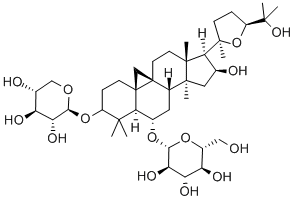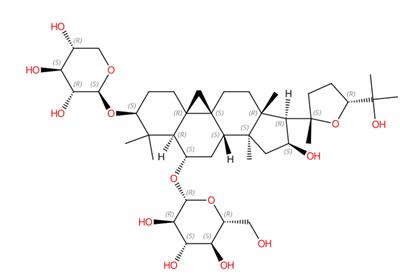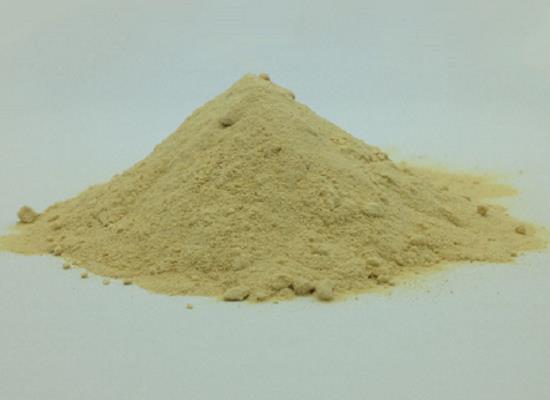Effect of astragaloside IV on kidney injury in mice
Astragaloside IV is a bioactive saponin first isolated from the dried plant roots of the genus Astragalus, which is used in traditional Chinese medicine. It dose-dependently inhibits human adenovirus type 3 (HAdV-3) in A549 cells (IC50 = 23 µM; LC50 = 865 µM). It inhibits replication of HAdV-3 and decreases HAdV-3-induced apoptosis. It has diverse protective effects for the cardiovascular, immune, digestive, and nervous systems. In particular, it reduces myocardial infarct size in dogs when administered prior to coronary ligation and reduces reperfusion arrhythmias in isolated rat hearts.

Background
Astragalus membranaceus, a traditional Chinese medicine (TCM), has been widely used in the treatment of chronic kidney disease (CKD) in China. Astragaloside IV is one of the major compounds of Astragalus membranaceus. Recent research has shown that astragaloside IV demonstrates pharmacological effects, such as anti-inflammatory, anti-fibrotic and anti-oxidative stress activities. Our aim was to investigate the effects of astragaloside IV on indoxyl sulfate (IS)-induced kidney injury in vivo, and to study the underlying mechanism.
Methods
Forty C57BL/6 mice with ½ nephrectomy were divided into four groups: control group (n = 10), IS group (n = 10), IS plus 10 mg/kg of astragaloside IV group (n = 10) and IS plus 20 mg/kg of astragaloside IV group (n = 10). IS intraperitoneal injection and astragaloside IV treatment were administered continuously for 1 month. Next, the blood urea nitrogen (BUN) level, serum IS level, tubulointerstitial injury, renal oxidative stress and inflammatory injury were assessed.
Results
The IS intraperitoneal injection mouse group showed increasing levels of serum IS, BUN, tubulointerstitial injury, renal oxidative stress and inflammatory injury. Astragaloside IV treatment couldn’t reduce the serum IS level or renal nuclear factor-κB and interleukin-1β levels. However, 20 mg/kg astragaloside IV treatment reduced the BUN level and significantly attenuated IS-induced tubulointerstitial injury. Renal oxidative stress was decreased by the administration of astragaloside IV.
Conclusions
These results suggest that astragaloside IV prevents IS-induced tubulointerstitial injury by ameliorating oxidative stress and may be a promising agent for the treatment of uremia toxin-induced injury.
You may like
Related articles And Qustion
See also
Lastest Price from Astragaloside IV manufacturers
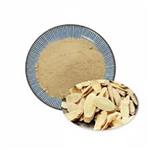
US $1200.00-1100.00/ton2025-10-17
- CAS:
- 84687-43-4
- Min. Order:
- 1ton
- Purity:
- 99%
- Supply Ability:
- 1000T/M
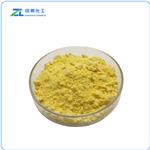
US $200.00-85.00/kg2025-04-15
- CAS:
- 84687-43-4
- Min. Order:
- 1kg
- Purity:
- 99%
- Supply Ability:
- 20ton
